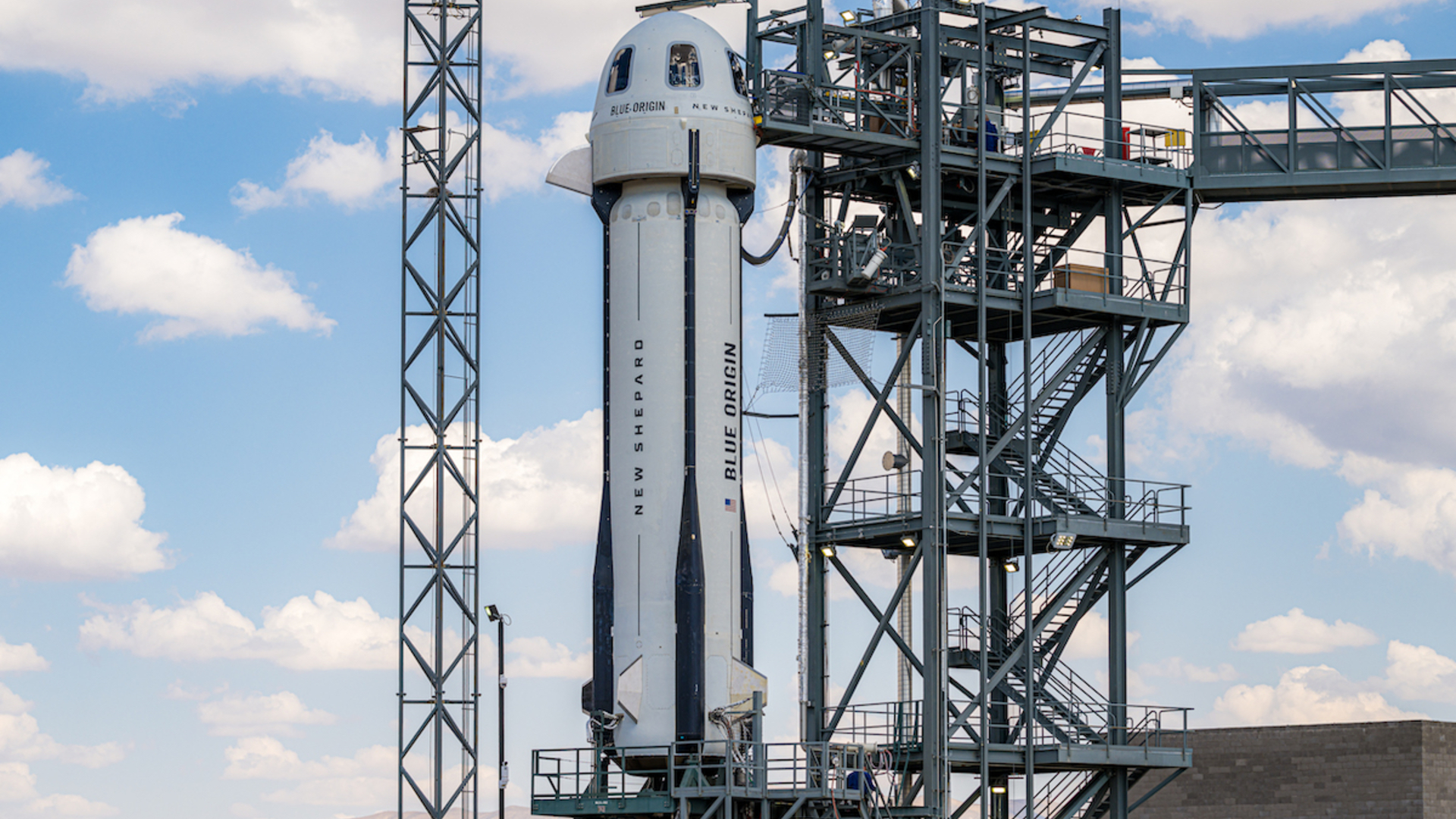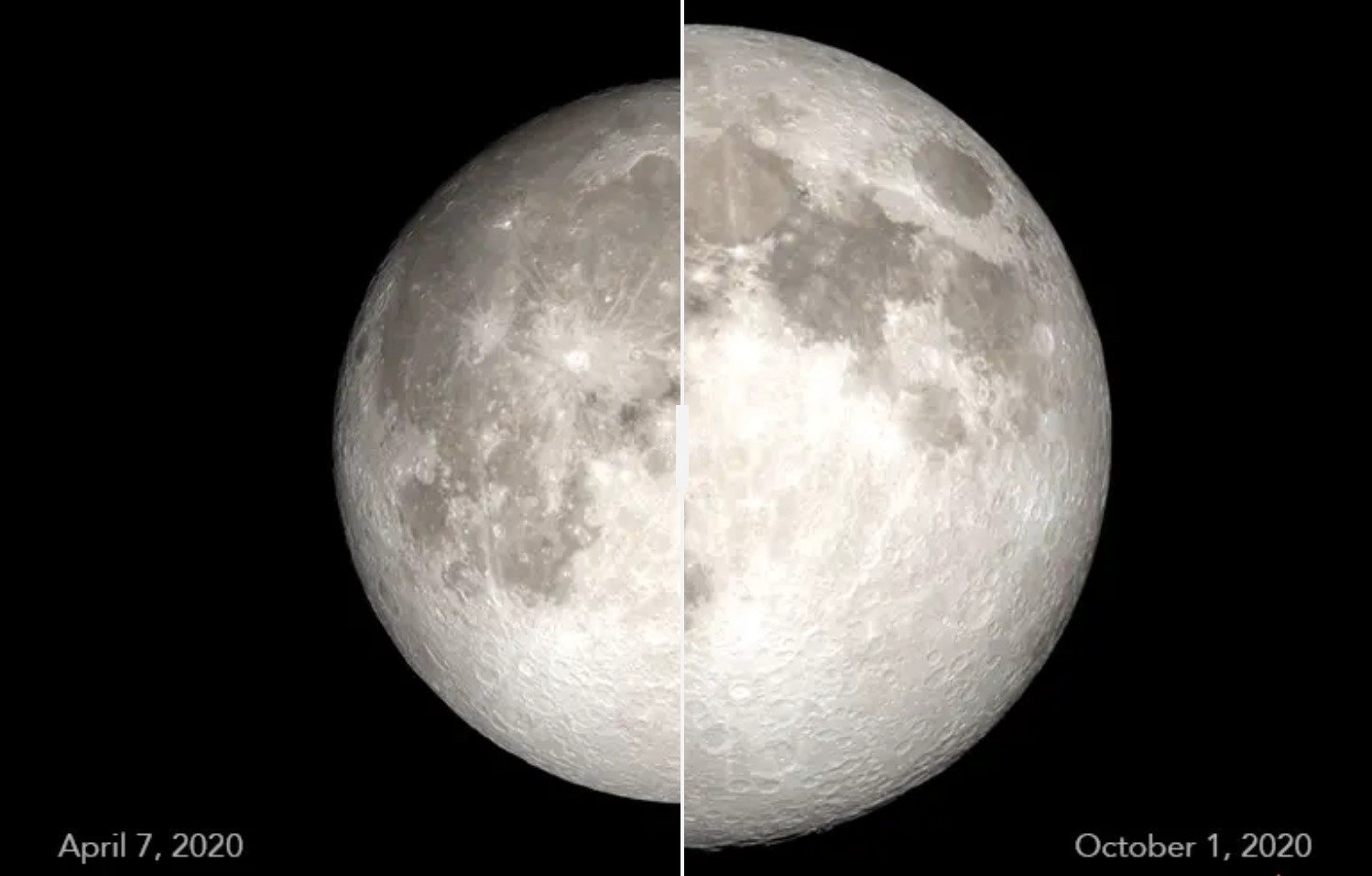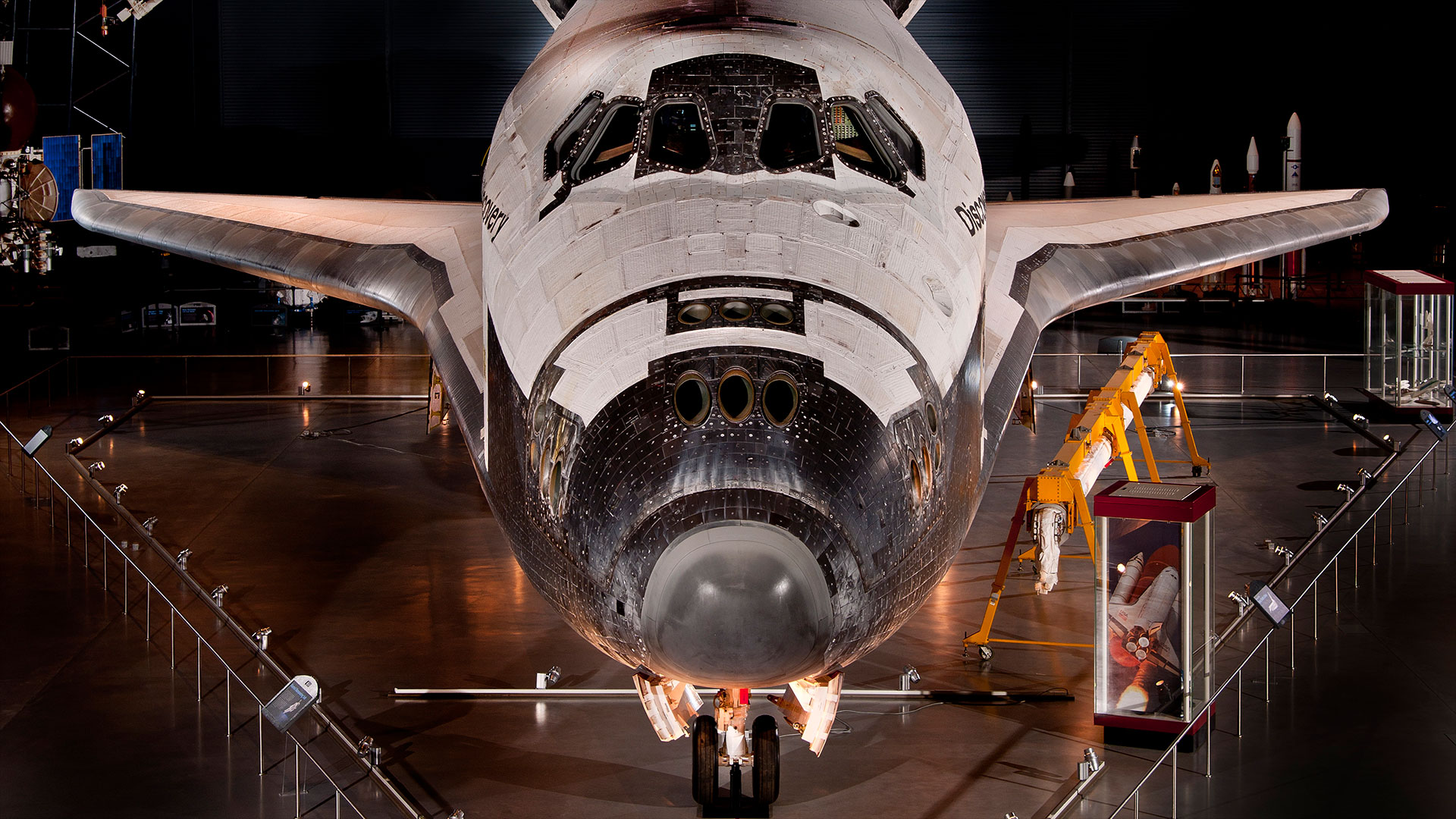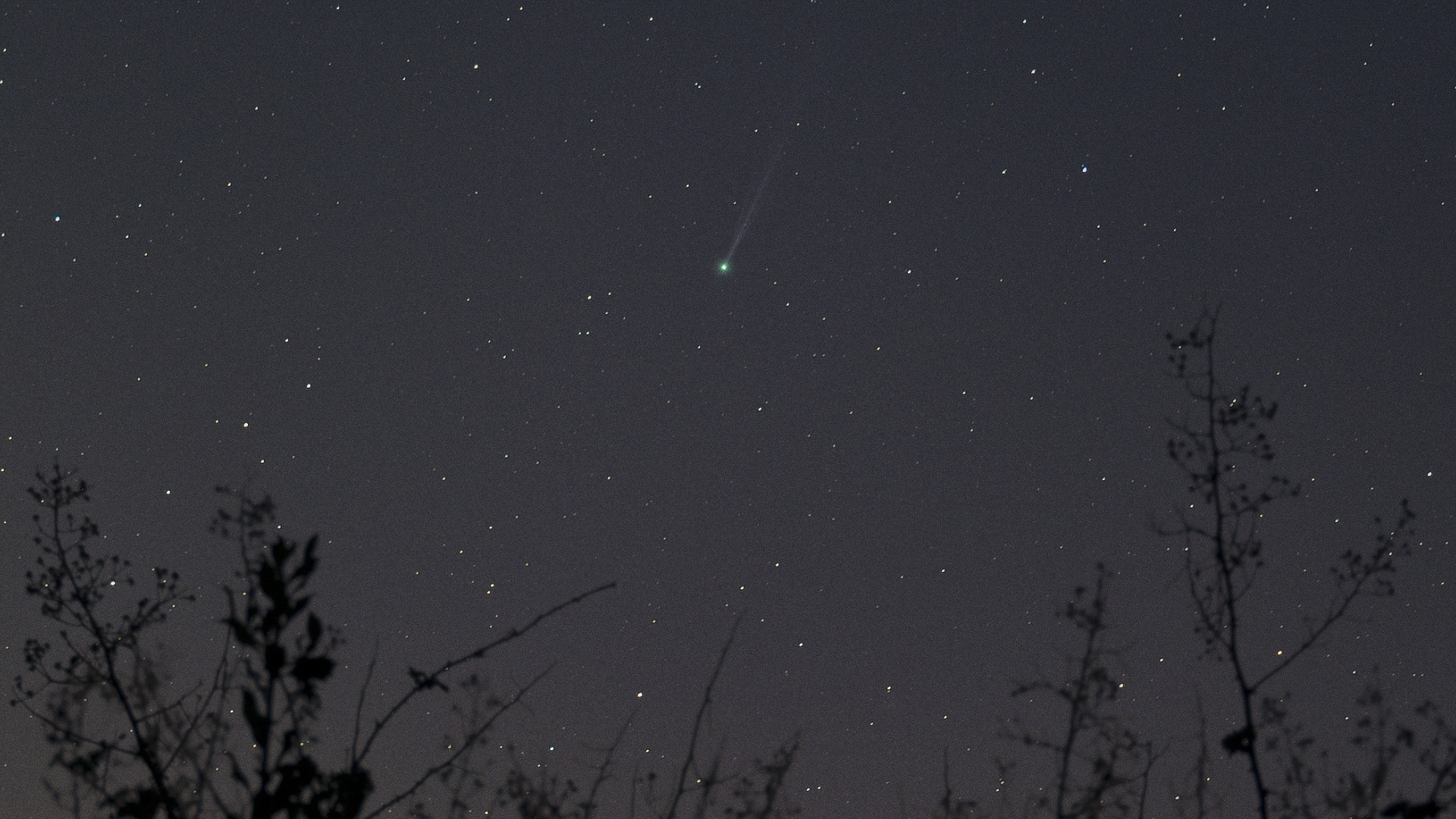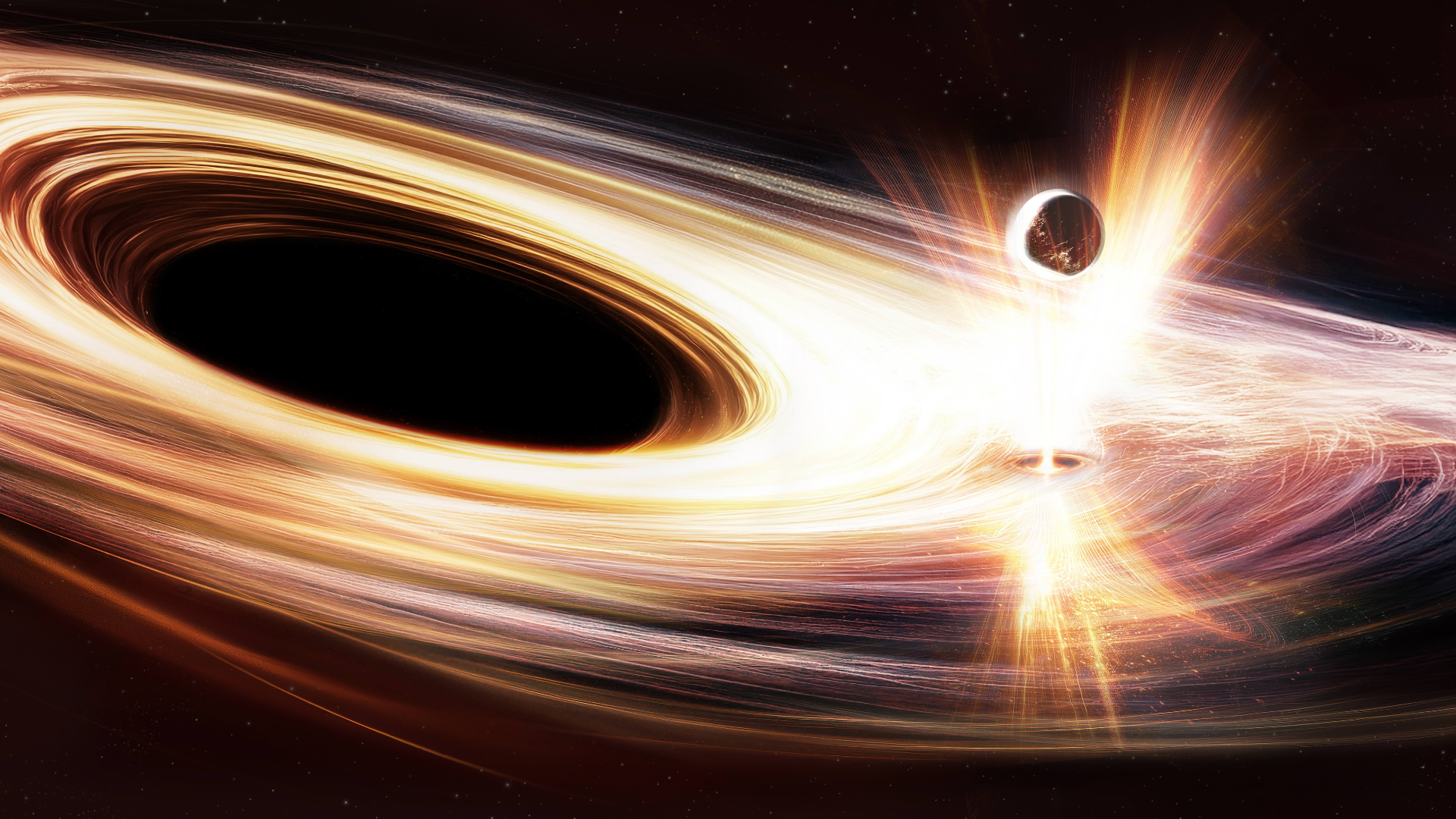US Space Force will make history when SpaceX's Crew-9 mission launches in September
When Crew-9 lifts off no earlier than Sept. 25, Space Force will be launching one of their own active servicemembers from their own launch complex for the first time ever.
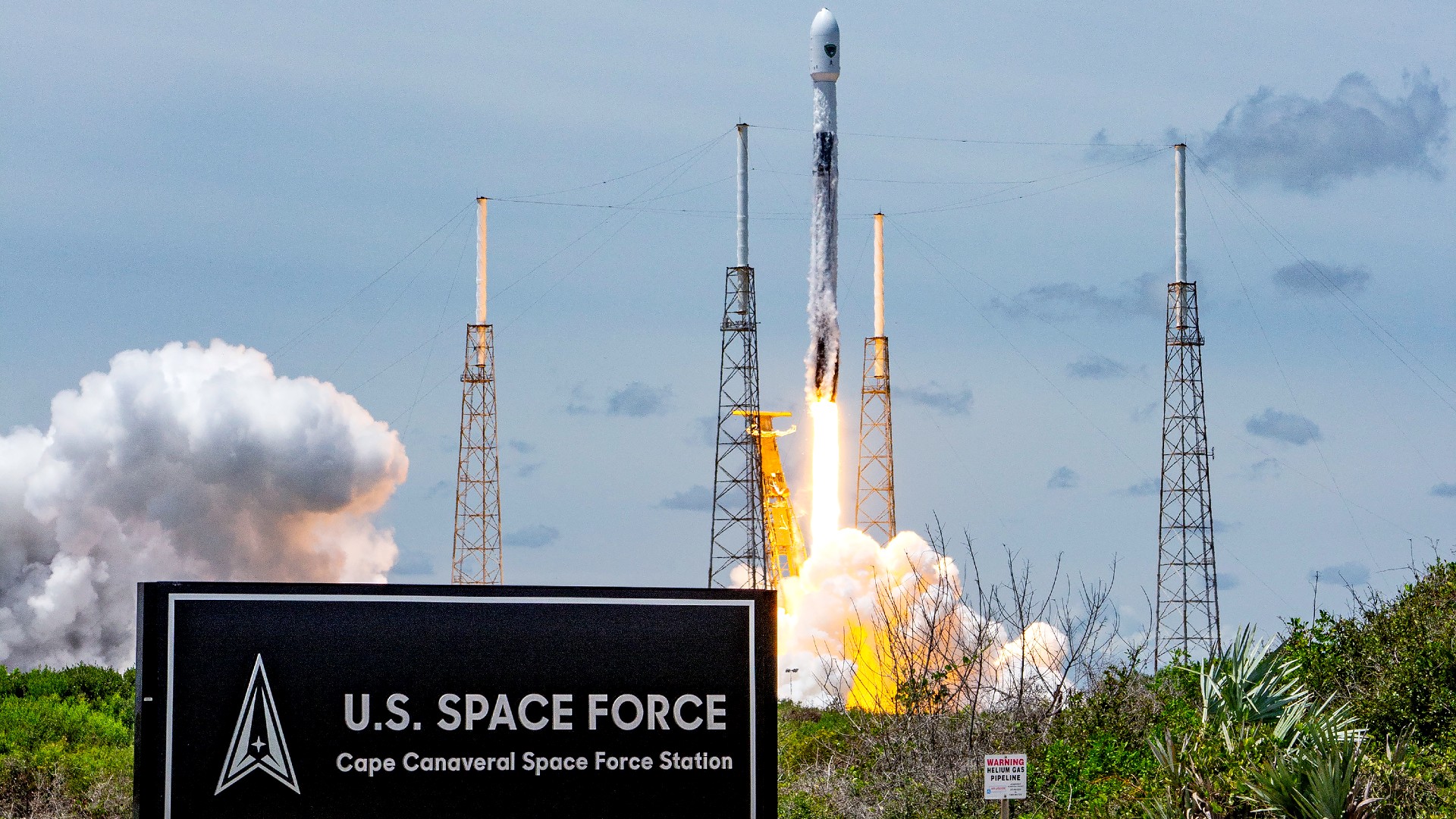
The upcoming SpaceX Crew-9 mission to the International Space Station will see the U.S. Space Force notch a few significant milestones.
When the mission launches, NASA astronaut, U.S. Space Force colonel and Crew-9 pilot Nick Hague will become the first active U.S. Space Force Guardian to launch into space. Another Guardian before him, NASA astronaut Michael Hopkins, was sworn into the service in 2020 while already on the International Space Station as commander of SpaceX's Crew-1 mission and a U.S. Air Force colonel.
But Hague's launch as an active Guardian isn't the only thing that's special about his liftoff. As it turns out, due to launch pad availability, when Hague and the rest of the Crew-9 astronauts launch no earlier than Sept. 25, they will lift off not from the NASA-run Kennedy Space Center (KSC), but from Space Launch Complex 40 (SLC 40) at the adjacent Cape Canaveral Space Force Station. That means not only will Space Force be launching one of their own personnel for the first time ever, but they will be doing so from their own launch complex.
Today, most astronaut launches take place from KSC. In fact, only one crewed launch has taken place from Cape Canaveral Space Force Station since 1968: the Crew Flight Test for Boeing's Starliner spacecraft, which launched on June 5, 2024.
Prior to that, the last astronaut launch to take place at Cape Canaveral (then known as Cape Kennedy Air Force Station) was the Oct. 11, 1968 launch of Apollo 7, the first crewed flight of NASA's Apollo program.
The station also hosted the first spaceflight of an American astronaut when Alan Shephard's Freedom 7 mission took off from the now-defunct Cape Canaveral Launch Complex 5. The first American to orbit Earth, John Glenn, also took off from Cape Canaveral on the Mercury-Atlas 6 mission in 1962. At the time of both launches, the base was known as the Cape Canaveral Missile Test Annex.
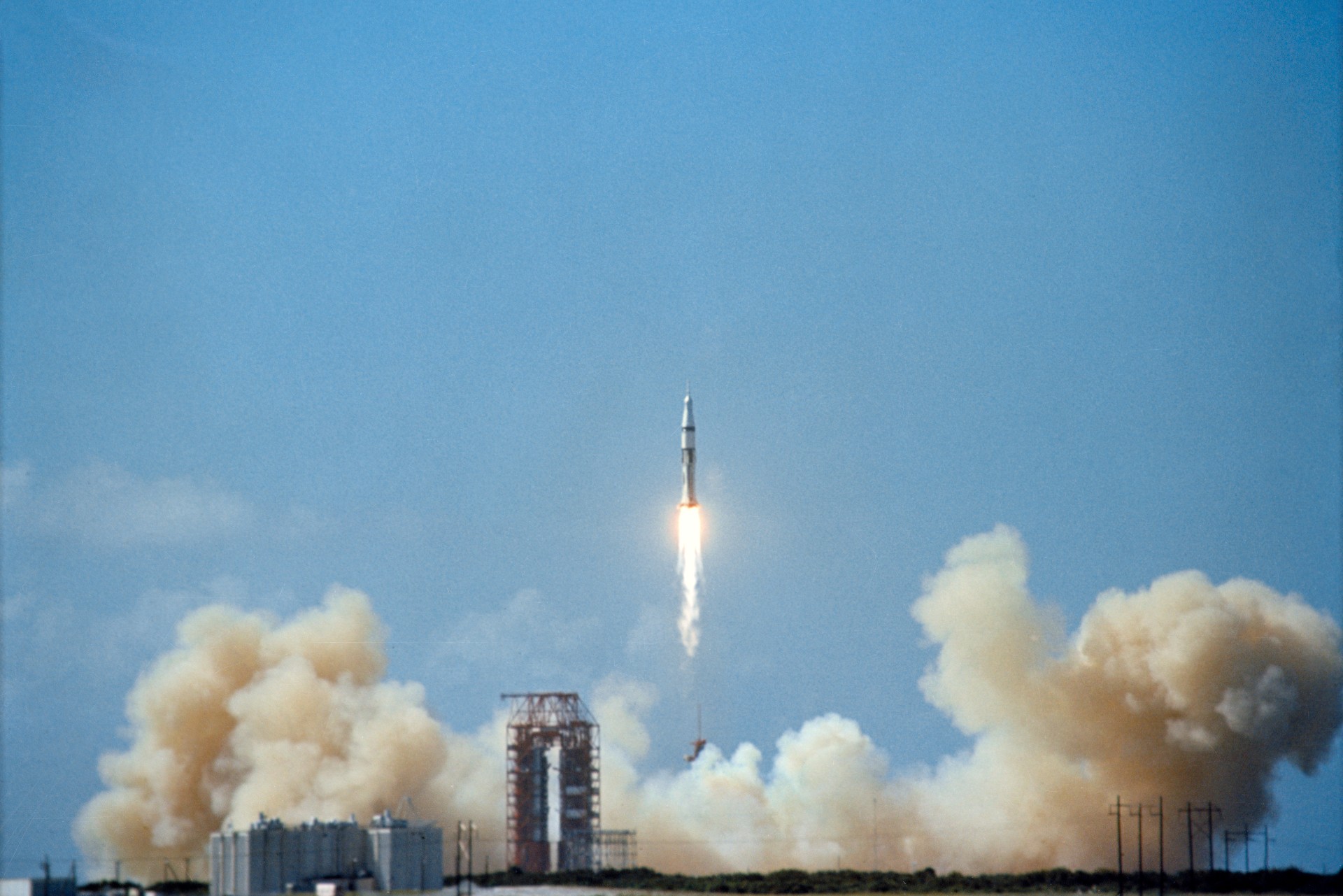
When Hague launches to the ISS on Sept. 25 along with his crewmates from what is now known as Cape Canaveral Space Force Station, he will not only be following in the footsteps of those groundbreaking astronauts, but also making history on behalf of the newest branch of the U.S. Armed Forces.
Get the Space.com Newsletter
Breaking space news, the latest updates on rocket launches, skywatching events and more!
It will be only the second time astronauts have launched from a Space Force installation, and the first time the service sends an active Guardian to space from any facility. It will also be the first-ever crewed launch from SLC 40.
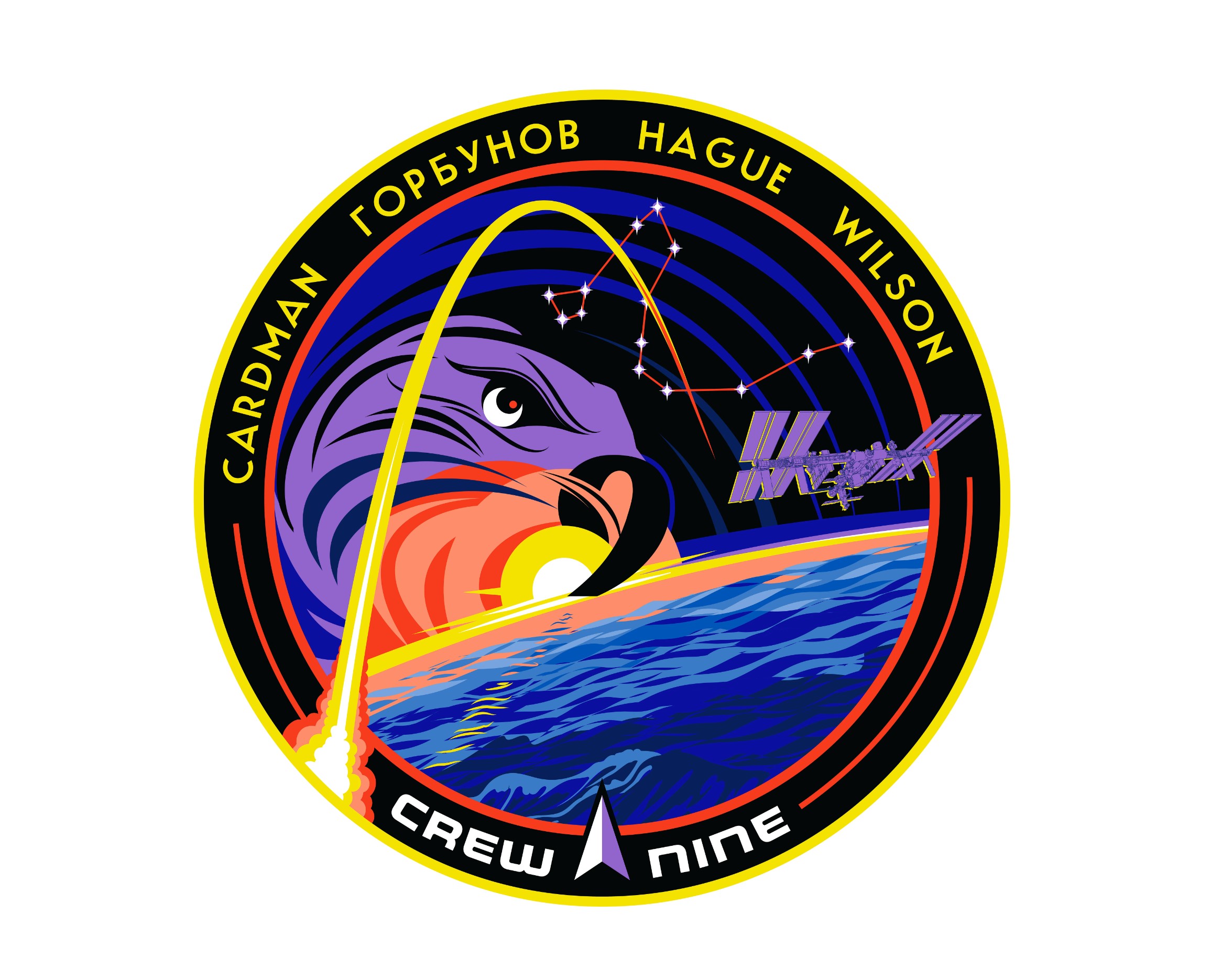
Hague has been assigned to two spaceflights before, but only one made it to space.
In October 2018, Hague and cosmonaut Alexey Ovchinin of Russia's space agency Roscosmos launched atop a Soyuz rocket destined for the ISS. The rocket suffered a malfunction about 2 minutes after liftoff, however, prompting an emergency abort using the vehicle's emergency escape system.
Six months later on March 14, 2019, Hague successfully launched to the ISS alongside fellow NASA astronaut Christina Koch and Roscosmos cosmonaut Alexey Ovchinin, where Hague would go on to perform three separate spacewalks.
Now on the verge of his third launch, Hague says he's honored to have the opportunity to launch to orbit again as not only a NASA astronaut, but a member of the Space Force.
"It's an honor for me to be able to represent all those Guardians that are around the globe that do all those things behind the scenes that make human spaceflight possible, whether that's launching us into space or it's protecting us while we're out there, by watching the skies and making sure things don't run into us," Hague said in an interview with Space.com in July 2024.
"There's so many things that they do on a daily basis that make it possible. And so to represent them and to be part of the astronaut corps as a member of the Space Force — the other services have active duty astronauts as well — and so this is really just another step that the service is taking in terms of establishing itself as a service."
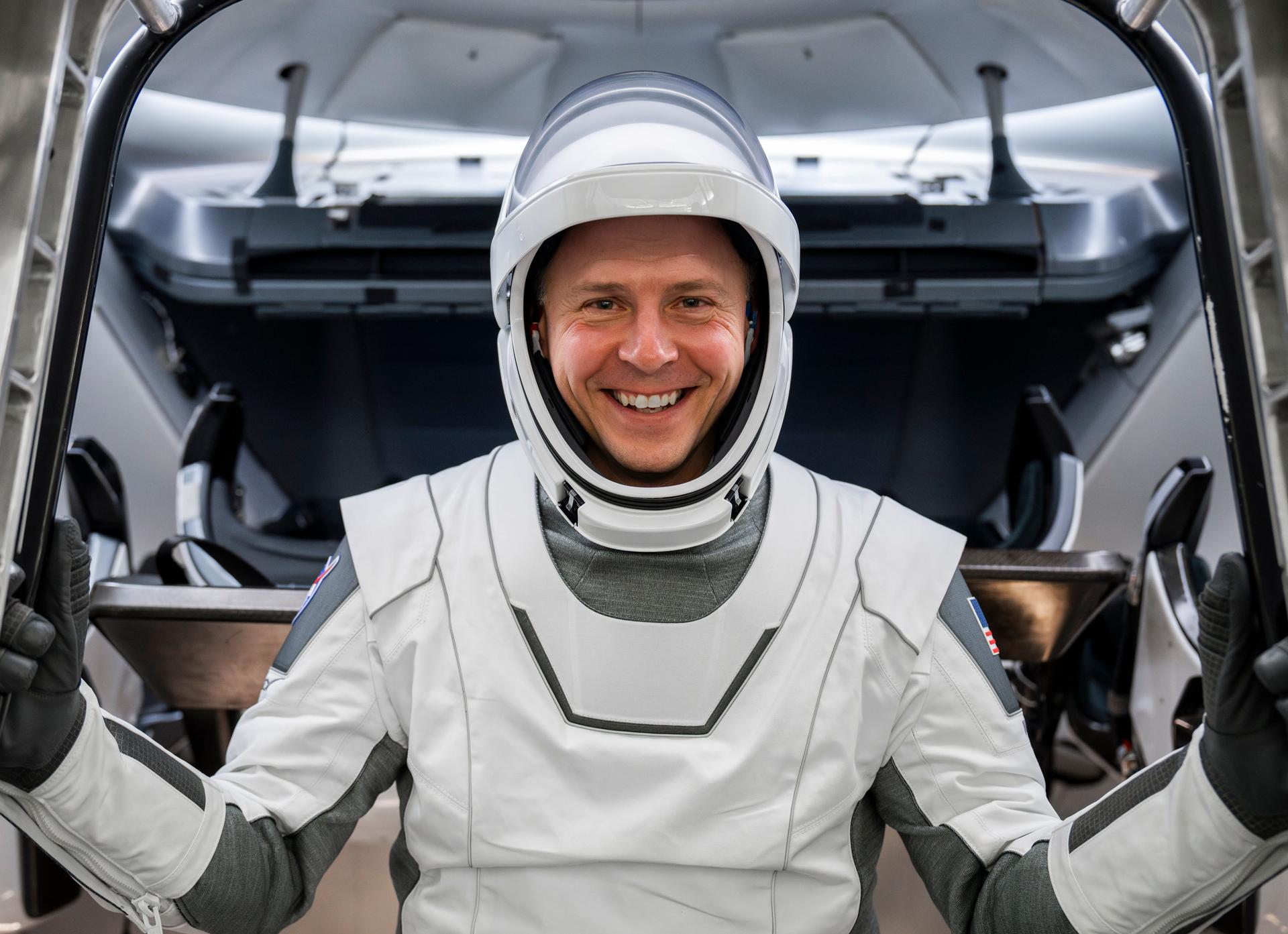
Hague said he's met personally with the two highest ranking members of the Space Force: Gen. Chance Saltzman, the chief of space operations, and Gen. Michael Guetlein, vice chief of space operations, who have given "100% support" for Hague to help highlight "just how important it is what we're doing up there" as part of NASA's Crew-9 mission.
In the interview, Hague was quick to note, though, that while a part of the astronaut corps, he is not actively working Space Force missions. "And so just because I'm Space Force doesn't mean I have Space Force projects that I'm doing out there. I work for NASA, conducting the civil space mission."
After launch and docking, Crew-9 will spend around six months on the ISS, during which time the crew will conduct a variety of scientific research. The mission's originally-scheduled launch date of Aug. 18 slipped into September due to ongoing issues with the beleaguered Boeing Starliner spacecraft, currently docked at the ISS while NASA weighs return options for its crew.
Join our Space Forums to keep talking space on the latest missions, night sky and more! And if you have a news tip, correction or comment, let us know at: community@space.com.

Brett is curious about emerging aerospace technologies, alternative launch concepts, military space developments and uncrewed aircraft systems. Brett's work has appeared on Scientific American, The War Zone, Popular Science, the History Channel, Science Discovery and more. Brett has English degrees from Clemson University and the University of North Carolina at Charlotte. In his free time, Brett enjoys skywatching throughout the dark skies of the Appalachian mountains.
-
ZZTOP Reply
150 IQ individuals that sit on top of exploding bombs designed to blow them off the planet just do not impress me. Warped gravity craft does impress me but as said we are still blowing stuff off the planetAdmin said:When Crew-9 lifts off no earlier than Sept. 24, Space Force will be launching one of their own active servicemembers from their own launch complex for the first time ever.
US Space Force will make history when SpaceX's Crew-9 mission launches in September : Read more -
billweberx "US Space Force will make history when SpaceX's Crew-9 mission launches in September"Reply
How is the USSF making history? It's a SpaceX flight and they're doing all the work. I'd say SpaceX is making history. -
ZZTOP Reply
In my opinion no history is being made with glorified Apollo era rockets.billweberx said:"US Space Force will make history when SpaceX's Crew-9 mission launches in September"
How is the USSF making history? It's a SpaceX flight and they're doing all the work. I'd say SpaceX is making history. -
billweberx Reply
What Apollo era rockets? Are you referring to Artemis? This article is about the SpaceX Crew-9 mission which is on a falcon 9 with the Dragon capsule. Hardly Apollo era.ZZTOP said:In my opinion no history is being made with glorified Apollo era rockets. -
ZZTOP Reply
Solid/liquid propulsion rockets are a WW2 era design. Still 100% in use today. I am an element 115 guybillweberx said:What Apollo era rockets? Are you referring to Artemis? This article is about the SpaceX Crew-9 mission which is on a falcon 9 with the Dragon capsule. Hardly Apollo era. -
billweberx Reply
That's ludicrous. Rocket engines have changed dramatically since then. Moscovium has no commercial use.ZZTOP said:Solid/liquid propulsion rockets are a WW2 era design. Still 100% in use today. I am an element 115 guy -
ZZTOP Reply
The principle governing rocket engines has not changed appreciably since 1939, and they still do the same things now as then. This is going nowhere, time to break out the UAP techbillweberx said:That's ludicrous. Rocket engines have changed dramatically since then. Moscovium has no commercial use.
7YFU4KaJSScView: https://www.youtube.com/watch?v=7YFU4KaJSSc
dU_4NwCMXI4View: https://www.youtube.com/watch?v=dU_4NwCMXI4
AfnvFnzs91sView: https://www.youtube.com/watch?v=AfnvFnzs91s
hzhP3Q5fku8View: https://www.youtube.com/watch?v=hzhP3Q5fku8 -
Unclear Engineer What are you talking about when you say "Element 115"?Reply
Chemical element 115 is Moscovium (also called "ununpentium"), and its isotope with the longest half life is moscovium-290, with a half-life of only 0.65 seconds.
Clearly not something useful for constructing or powering a spacecraft.
But, there has been some lunatic fringe mythology about it, as discussed here: AskPhysics/comments/ibt27x/could_element_115_be_used_to_power_an_alienView: https://www.reddit.com/r/AskPhysics/comments/ibt27x/could_element_115_be_used_to_power_an_alien/ .
If that is what you are selling, you are in the wrong place, here! -
Cisventure Astronot Replybillweberx said:"US Space Force will make history when SpaceX's Crew-9 mission launches in September"
How is the USSF making history? It's a SpaceX flight and they're doing all the work. I'd say SpaceX is making history.
The USSF probably does a lot behind the scenes. Owning a Space Launch complex is a lot of work.
And even if they weren't, imagine the world's first sailor sailing on a commercial ship from a commercial port. That's still historic. -
ZZTOP Reply
Actually Bob Lazar predicted element 115 before it was discoveredUnclear Engineer said:What are you talking about when you say "Element 115"?
Chemical element 115 is Moscovium (also called "ununpentium"), and its isotope with the longest half life is moscovium-290, with a half-life of only 0.65 seconds.
Clearly not something useful for constructing or powering a spacecraft.
But, there has been some lunatic fringe mythology about it, as discussed here: AskPhysics/comments/ibt27x/could_element_115_be_used_to_power_an_alienView: https://www.reddit.com/r/AskPhysics/comments/ibt27x/could_element_115_be_used_to_power_an_alien/ .
If that is what you are selling, you are in the wrong place, here!
So as the Yogi said, ya gotta believe
BEWz4SXfyCQ:17View: https://www.youtube.com/watch?v=BEWz4SXfyCQ&t=17s





